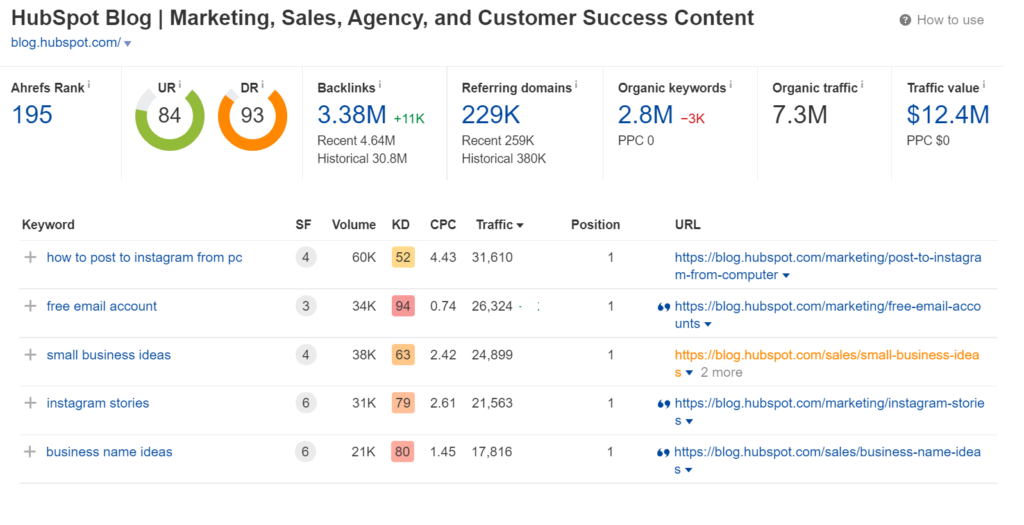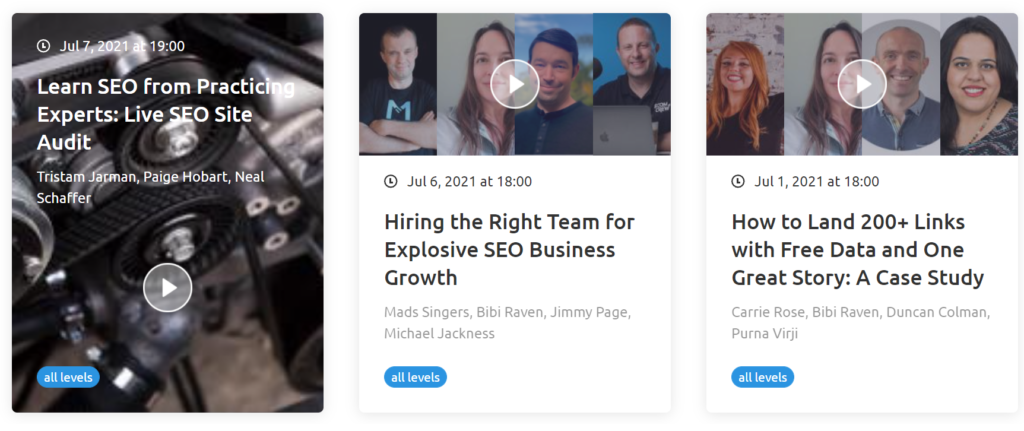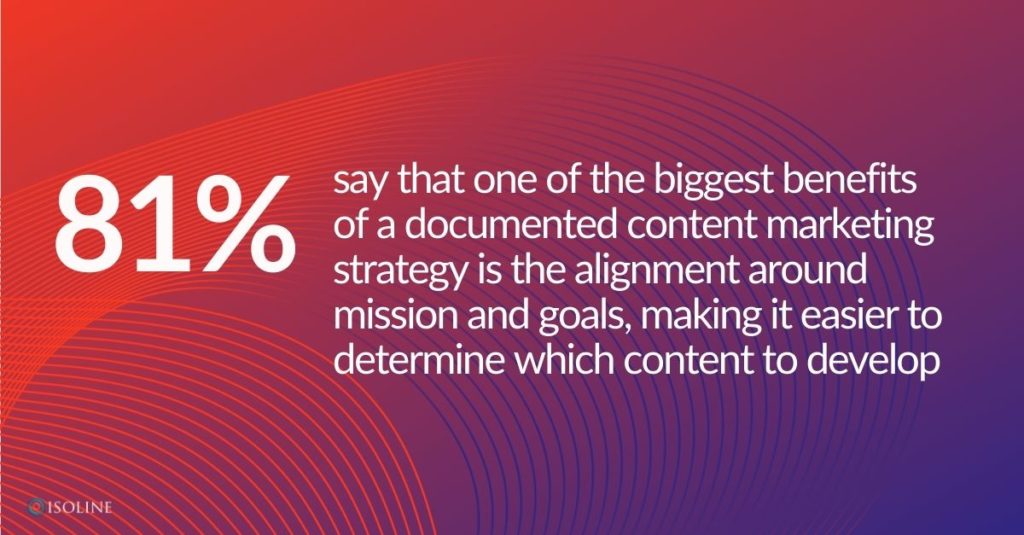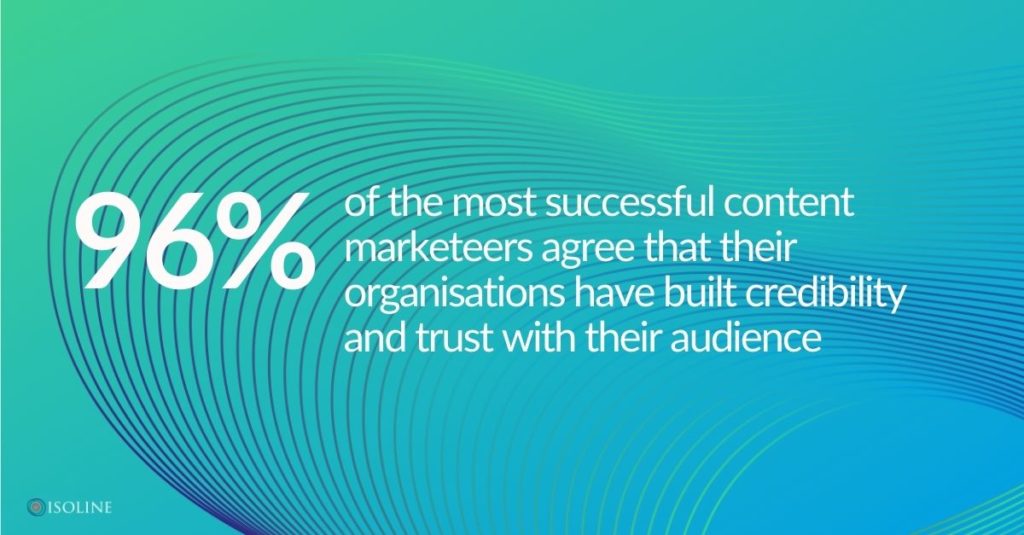Content marketing is having a day in the sun, with tech B2B brands investing heavily in content to drive sales and preference. And with good reason – building and executing a successful content marketing strategy for tech B2B brands can result in sustained loyalty from customers who feel that you understand their pain points and goals and seek to fulfil their needs.
However, content marketing’s very versatility can also be a little daunting: it’s easy to feel confused with the range of approaches available. Which one is right for your brand, sector, market position, and investment?
B2B Content Marketings Ideas You Can Use Today
1. Blog Posts
The corporate blog is often the first channel for content action. There are many different types of articles that can be published as part of a company’s blogging strategy: advice, industry insights and new trends, event recaps after your own events or an event you have attended, etc.
Well, there’s no standard one-size-fits-all approach, here is some advice on how to avoid some common pitfalls and implement a successful content strategy that delivers the most value for your investment. If you have access to tools such as ahrefs a quick and easy way to find topic ideas is to look at competitor blog posts that are driving traffic.
How To Come Up With B2B Blog post ideas
So how do you come up with B2B blog post ideas? Here are some quick ways
- Use tools Like AnswerThePublic & AlsoAsked to find frequently asked questions in your industry
- Ask your sales team for common customer pain points
- Use tools such as SEMrush and Ahrefs to identify content currently driving traffic to your competitor’s websites.
B2B Blog Example
One of the best examples of a B2B blog is HubSpot. You can see some of their estimated stats from ahrefs below. That’s over 7M visits each month to their website from their blog.

2. Interviews & Guest Posts From Industry Experts
Your company’s blog doesn’t need to be authored exclusively by your staff. Let experts publish technical articles on the blog, or interview them about topics of interest if it is not possible for you to cover these subjects in-house. You’ll never run out of new content as long as there are people with ideas and expertise who want a platform from which they can speak their mind!
3. Publish Original Research
Can you conduct a study into a hot topic in your industry? Original research is a great way to provide unique and new content that your industry and clients may find interesting and useful. Think about pain points, industry trends and assumptions and see if you can get data to back them or, or go against them. Once you have the data write this up and do some outreach.
We’re a big fan of this method ourselves having done two big original research pieces, the most recent can be found on the link below
https://www.isolinecomms.com/resources/2020-content-marketing-insights/
Original Research Ideas
Getting a meaningful amount of respondents to your research is key, and you may have to set aside some budget to get this. However, this types of content can go a long way. We’ve put some ideas below to get you started
- Can you prove or disprove an industry myth?
- Discover & set industry trends – are people spending more or less money, what are their challenges?
4. Create an eBook
E-books are a great way to share your expertise. If you have an extensive topic in your industry, then publishing it as an e-book is worth considering. You can publish the book on your own website and use it as a lead magnet requiring users to enter their email address to access it. This is a great wat to generate leads for your business
5. Create A Whitepaper
A whitepaper is a great alternative to an eBook. Compile your knowledge in a practical and appealing way, add checklists or worksheets for customers depending on the topic, and offer the PDF for download! Again, this can be used as a nice lead magnet. Or if you have an existing piece of content that you which to use, you can convert this to a PDF via document conversion. So have a think if there’s any existing pieces of content you could possibly use as a Whitepaper.
6. Host a webinar and share its recording
Webinars provide you with a great way to engage with current and potential customers. Pick a topic that they will find useful and engaging, it could be a pain point or a “how to” topic. SEMRush is a great example of this, they regularly host webinars with industry experts and cover topics related to their software.
B2B Webinar ideas
Below are some quick ideas that you could use for your next B2B webinar
- Product Demo
- Live Panel discussion
- How to series
- Live Case Study
- Share your product/company roadmap
- Discuss industry trends and events
- Q&A Webinar – ask users/customers to send in questions before
B2B Webinar Example
A great example of a B2B webinar series is SEMrush. They run webinars regularly with well known influencers in the SEO industry and cover pain points or provide expert advice to their target audience.

Those invited onto the webinar also share the relevant links before and after the event, which get’s SEMRush in front of a relevant audience.
7. Start or be on a podcast
Audio content is a wonderful way to share information and increase your reach, and podcast listeners continue to grow. With podcasts, you not only get the chance to showcase what you know–but also give valuable advice that can help soothe customers’ worries or answer their questions. Plus, with guests on board who may refer listeners back to your show or product.
You can simply search “[your industry] podcast” and Google will provide you with some initial podcasts you can try and get on.
8. Create a short course
Can you create an educational and actionable short course for your customers? This will be a great way to showcase your expertise and build goodwill with potential customers. For example, if you were trying to get more customers to sign up for your email marketing platform, you could create a short course called “The Beginners Guide to Email Marketing” which will educate users, and also introduce them to your product and what it can do.
9. Create an Academy
You could take the above idea one step further and create a whole academy with your own certifications. Starting with designing the curriculum, pre-selling the course and building a good reputation is a great start. Again, SEMrush are a great example of this (check out their academy here)
Academy Example
Again we’re going back to HubSpot which have a very well-built-out academy. https://academy.hubspot.com/
Things to keep in mind
If you’re embarking on a b2b content marketing strategy or looking to implement any of the ideas above, there are a few things you need to keep in mind.
Maintain a holistic approach
Whether your goal is building thought leadership and establishing your company as an expert, or driving qualified leads into your pipeline, it’s essential to remember that content marketing does not work alone. It is part of a wider marketing mix, that could include face to face sales, PR, and industry events, to name just a few. Getting your content strategy aligned first and foremost with clarity on how that feeds into your wider marketing mix will lead to process efficiencies and better results.
Have a clear timelined plan with clarified end goals
Decide what you’re trying to achieve in the first instance and in what order. What aims best fit with your strategic priorities and for your brand? Depending on the nature of your business and the length of your sales cycle, you may have very different priorities to that of your industry peers. So don’t assume a ‘one size fits all model’, and don’t be afraid to seek assistance from experts who specialise in helping with this. Planning before setting out your stall, and tailor your content to make it work for each element of your strategic plan and internal product launches/re-branding/industry activity etc. will produce better results.

One chance to make a first impression
We’ve all been there, clicked on a website only to be instantly bombarded with an in-your-face disruptive pop-up asking you to provide your feedback on their website when you’ve not even had the chance to look at it, let alone be in a position to provide valuable feedback. A classic example of how to aggravate your customer before they’ve even begun.
If you can cast your mind back to the pre-pandemic days of venturing frivolously into a store with a view of browsing and doing a little recon research before deciding if you need any further info; the sales people that pounced straight on you asking to help were much less welcome that those politely but gently reminding you that they’re there if you need anything.
Aligning your content marketing strategy with the purchase cycle, and enabling your buyers to progress autonomously through the content discovery journey, will yield far better results than hard-selling your proposition from the word go. With analytics-based insights into what the prospect has clicked on and engaged with, or downloaded or watched, well-positioned tailored content can drive engagement and conversions.

Timing is key
It’s no good targeting a Chief Technical Officer (CTO) with a brand new security software two weeks after they’ve just signed a deal with your nearest competitor. No matter how good the ROI case study might demonstrate your solutions benefits – if the timing is off, the leads can be lost. Good content marketing needs to have a well thought out execution plan that appropriately acts on consumer insights at the right time.
Customers want to know that you understand them and their needs at that specific point in their decision making process. There is a plethora of analytics tools available in the market that can enable you to intelligently target them with the right content at the right time. This considered approach will turn your content from noise to value: making your target audiences feel understood and secure in the knowledge that you understand their needs.
Ask the experts
And if the above can seem overwhelming or you’re not sure where to start, there’s a lot to be said for reaching out and seeking specialist help. Read more in our marketing trends for 2021 blog here.
Get in touch: hello@isolinecomms.com.
Photo by Kristopher Roller on Unsplash



